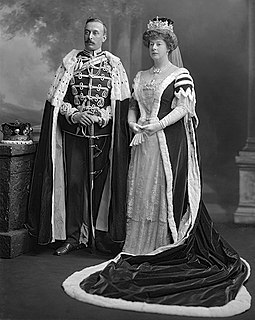 W
WGeorge William James Chandos Brudenell-Bruce, 6th Marquess of Ailesbury,, styled Earl of Cardigan between 1894 and 1911, was a British soldier. According to his hand-written memoirs, available at the Wiltshire and Swindon History Centre, he went by the name Chandos.
 W
WHenry Augustus Brudenell-Bruce, 5th Marquess of Ailesbury, styled Lord Henry Bruce from 1878 to 1894, was a British soldier, businessman and Conservative politician.
 W
WJohn Francis Arundell, 16th Baron Arundell of Wardour JP TD was a British soldier.
 W
WRichard Ashley was a first-class cricketer who played two matches for Somerset County Cricket Club in 1932. He also appeared in two first-class matches in India in the late 1930s, playing for Mysore in the Ranji Trophy and for the Europeans (India) in the Bombay Pentangular Tournament. He was a right-handed batsman and a fast-medium bowler, though it is not known whether he bowled with his right or left hand. A 2017 book states that he was born in Weston-super-Mare, Somerset, and died in Bognor Regis, West Sussex; previously it had been thought that he was born at Axbridge and died at Selsey.
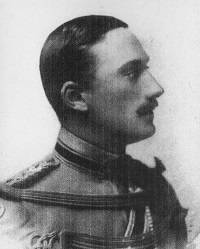 W
WPercy d'Aguilar Banks played first-class cricket for Somerset in 1903 and 1908. He was born at Bath, Somerset and died in the First World War fighting at the Ypres salient, Belgium.
 W
WColonel Alexander Campbell of Possil (1754–1849) entered the army as an ensign in the 42nd Regiment in April 1769, and obtained a lieutenancy in the 2nd Battalion Royals the following year in Menorca. He moved to the 62nd regiment later that year in Ireland and went with the regiment to Canada, where, as a captain of light infantry under General Carleton, he fought in the campaigns of 1776 and 1777 with General Burgoyne in the American War of Independence.
 W
WMajor General Basil Aubrey Coad, was a senior British Army officer. He held battalion, brigade and divisional commands during the Second World War and immediately after, but is best known as the commander of the 27th British Commonwealth Brigade during the Korean War.
 W
WJohn William Dunne was a British soldier, aeronautical engineer and philosopher. As a young man he fought in the Second Boer War, before becoming a pioneering aeroplane designer in the early years of the 20th century. Dunne worked on automatically stable aircraft, many of which were of tailless swept wing design, to achieve the first certified stable aircraft. He later developed a new approach to dry fly fishing before turning to speculative philosophy, where he achieved some prominence and literary influence through his "serialism" theory on the nature of time and consciousness, explained in his book An Experiment with Time.
 W
WCaptain Edward John Eliot was an English soldier.
 W
WGeneral Sir Anthony Heritage Farrar-Hockley, nicknamed Farrar the Para, was a British Army officer and a military historian who fought in a number of British conflicts. He held a number of senior commands, ending his career as Commander-in-Chief of NATO's Allied Forces Northern Europe. Throughout his four decades of army life, he spoke plainly, and both before and after his retirement in 1982 wrote on the conflicts he had experienced and the Second World War.
 W
WGeneral William Henry Adelbert Feilding was a British soldier of the Coldstream Guards.
 W
WField Marshal Sir Samuel Hulse, GCH was a British Army officer. He saw his first active duty during the Gordon Riots in June 1780 before commanding the 1st Battalion of the 1st Regiment of Foot Guards at key battles of the Flanders Campaign during the French Revolutionary Wars. He also commanded the 1st Guards Brigade at a later battle and then joined the retreat into Germany during the closing stages of the Flanders Campaign. He later took part in the Anglo-Russian invasion of Holland and then returned to England to become General Officer Commanding South East District. After completing active service in the Army, he served in the household of King George IV.
 W
WJohn Frederic Inglis was a Scottish amateur sportsman who became a major in the Duke of Edinburgh's. He played cricket for Kent County Cricket Club and football for the Wanderers and for Scotland in a representative match in 1871.
 W
WMajor General Dudley Graham Johnson, was a British Army officer and recipient of the Victoria Cross, the highest award for gallantry in the face of the enemy that can be awarded to British and Commonwealth forces.
 W
WLieutenant General Sir John Gaspard Le Marchant (1803–1874) was a British Army officer and governor of Newfoundland from 1847 to 1852. He later became the Lieutenant Governor of Nova Scotia (1852–1858) and Governor of Malta (1858-1864).
 W
WRichard Napier Luce, Baron Luce, is former Lord Chamberlain to the Queen from 2000 to 2006, and has been Governor of Gibraltar, a Conservative Member of Parliament (MP) and government minister, and a crossbench member of the House of Lords.
 W
WLieutenant General The Right Honourable Sir Thomas Maitland was a British soldier and colonial governor. He also served as a Member of Parliament for Haddington from 1790 to 1796, 1802–06 and 1812–13. He was made a Privy Councillor on 23 November 1803. He was the second surviving son of James Maitland, 7th Earl of Lauderdale, and the younger brother of James Maitland, 8th Earl of Lauderdale. Maitland never married.
 W
WGeorge Montagu was an English army officer and naturalist. He was known for his pioneering Ornithological Dictionary of 1802, which for the first time accurately defined the status of Britain's birds. He is remembered today for species such as the Montagu's harrier, named for him.
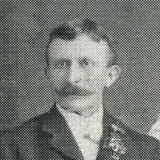 W
WEdward Agar Horatio Nelson, 5th Earl Nelson, was a British peer, inheriting the earldom in September 1947 from his older brother, Thomas Nelson, 4th Earl Nelson.
 W
WThomas Shuldham O'Halloran was the first Police Commissioner and first Police Magistrate of South Australia.
 W
WJohn Henry Pyle Pafford was an English librarian of the University of London Library from 1945 to 1967 and – as Major J H Pafford, the Wiltshire Regiment ‒ joint Instigator and team Leader of The Army Standard Unit Library Project of the AEC, later the Royal Army Educational Corps, from 1942 to 1945.
 W
WGeneral Sir William Platt was a senior officer of the British Army during both World War I and World War II.
 W
WRobert Montagu Poore, CIE, DSO was a cricketer and British army officer who, whilst serving in South Africa in 1896, played in three Tests for the South African cricket team. Much of his cricket was played when he held the rank of major, but he eventually became a brigadier-general. "Of all the people in the history of the game," wrote Leo Cooper in an introduction to A. A. Thomson's Odd Men In, "he seems to stand for the Eccentric Ideal."
 W
WArthur Edward Harington Raikes was a British army officer who served as acting prime minister, vizier and first minister to numerous Sultans of Zanzibar. Serving in the Wiltshire Regiment Raikes took up a position as brigadier-general in Zanzibar's army and fought on the pro-British side in the Anglo-Zanzibar War. He also helped to negotiate the demarcation of the boundary between Zanzibari and British territory on the African mainland. Raikes was awarded honours by several nations in the course of his work.
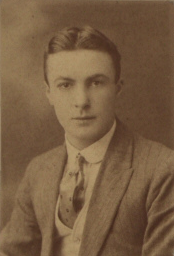 W
WEdward Owen Rutter was an English historian, novelist and travel writer.
 W
WGeneral George Frederick Upton, 3rd Viscount Templetown, styled The Honourable George Upton until 1863, was an Irish soldier and politician.
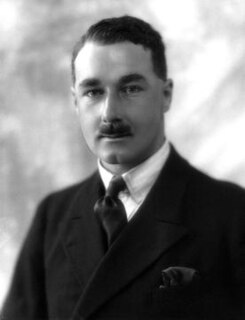 W
WMajor General Lechmere Cay Thomas, was a senior British Army officer who fought in both the First and Second World Wars.
 W
WLord Alexander George Boteville Thynne was a British Army officer and Conservative politician.
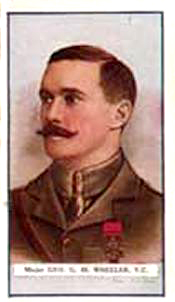 W
WGeorge Godfrey Massy Wheeler, VC was a British Army officer, and a recipient of the Victoria Cross, the highest and most prestigious award for gallantry in the face of the enemy that can be awarded to British and Commonwealth forces.
 W
WLieutenant-Colonel George Williams was a British army officer and Liberal politician.